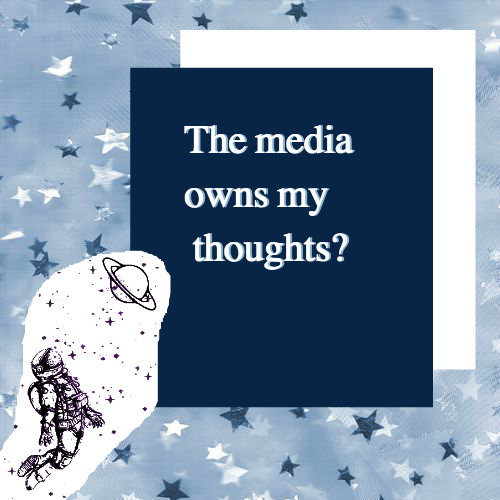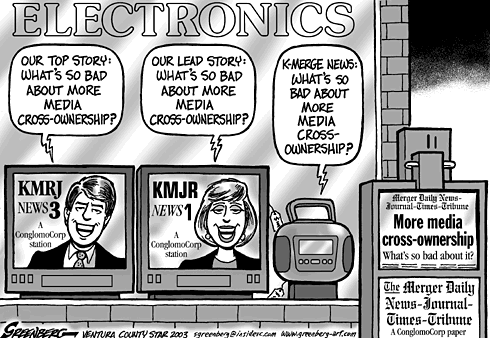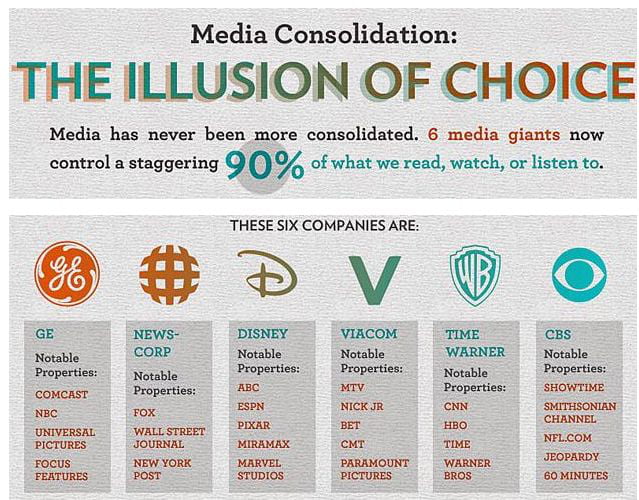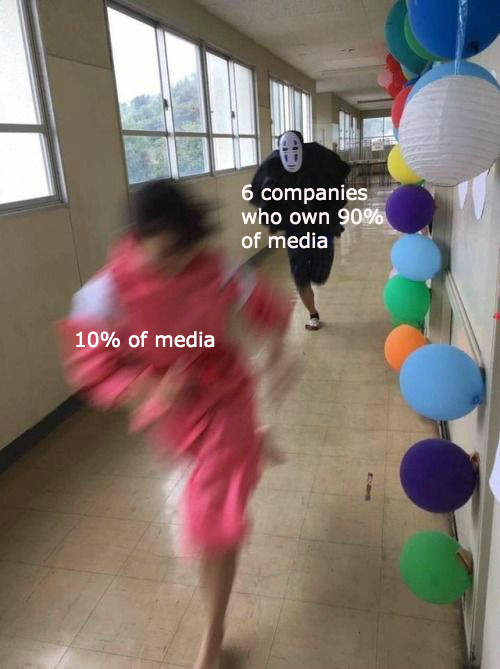
“If you’re not careful, the newspapers will have you hating the people who are being oppressed, and loving the people who are doing the oppressing”.
Malcolm X
Have you ever stopped to think; Why am I being told this message? Does it benefit the sender? Has it been manipulated?
In the wake of increased media platforms and fewer parties being involved in the ownership process these questions should be asked more often than not. Why? Well because media ownership is an extremely influential source of power. It grants the owner the ability to govern what media is released, how it’s produced, the content in which is being shown and consequently the way in which it’s audience perceive news and events.

(Greenberg, 2003)
The reality is “whoever controls the media, … controls the culture”. (Ginsberg, 1979) This being as, the media plays a crucial role in conveying information to the masses, thus individuals utilise this information to make decisions within their lives.
Therefore, the need for media ownership to be shared is essential as if one person were to hold all the power they then hold the power to brainwash and manipulate the public. In addition, diversity in ideas and opinion is extremely important for a functioning democracy. It allows individuals to hold the government, businesses and even other members of the public accountable.

Similarly, the immense need for control to be distributed is highlighted within the Australian legal system. This being as, it is separated into three independent branches in order to prevent the government from operating without a rule of law and constitutional accountability.
The most common media outlet that I access news from is Twitter. Although Twitter is owned by many shareholders they have no particular control over what is exactly posted and shared. Yes, they do have the ability to delete tweets that violate their guidelines, however unlike legacy media they don’t gate keep the content being published. This means that they don’t funnel through and approve each individual post hence, their lack of control.

As a result, I view Twitter as a trustworthy source of information as by allowing unfiltered, unbiased information to be posted they allow audiences to come to their own conclusions. However, a negative to this freedom is that not every source posted will be correct and perhaps needs to be fact checked for legitimacy.
Ultimately, due to the changing world of media ownership audiences must try to prevent manipulation by now taking responsibility in being alert regarding who is informing them and why the message is being communicated.
References:
Book:
Ginsberg, A. (1979). Brain Power: Learn to Improve Your Thinking Skills. Karl Albrecht, p.6.
Image:
Frugal Dad (2012). Media Consolidation: The Illusion of Choice. [image] Available at: https://visual.ly/community/infographic/entertainment/media-consolidation-illusion-choice [Accessed 8 Apr. 2019].
Greenberg, S. (2003). Media cross- ownership. [image] Available at: http://www.greenberg-art.com/.Toons/.Toons,%20Media/MediaOwnership.html [Accessed 8 Apr. 2019].
LINKS:
Twitter: simplysez
Instagram: sarahcreecy
Thanks for reading, don’t be shy to leave a comment, like the post or even follow my blog. Any of the above is appreciated :))
Hey there!
I really enjoyed with how you linked the concept of media ownership with Twitter, an example where we all somehow can understand and relate towards. The quote from Malcolm X was brilliant, it was straight to the point and it blended well with what you are talking about within this blog. However in terms of media ownership, who are examples of powerful individuals behind our own media such as our news, magazines and etc.? Good job keep it up! 🙂
LikeLiked by 1 person